“How many Pulitzer Prize winners can do that?” It’s part of a joke from a Season 6 episode of The Simpsons, poking some good-natured fun at celebrated Southern writer Eudora Welty. During her long and eventful life (she was still kicking around when that episode aired), Welty received plenty of other accolades besides the esteemed Pulitzer, including the O. Henry Award, the National Book Award, the Order of the South, and even a Presidential Medal of Freedom. She was also the first living author to be published by the Library of America.
Besides her extensive writing about the American South, Welty was a photographer who took pictures of people from all economic backgrounds and walks of life, many of which she later published. Welty herself chalked up her literary success in no small part to her “natural abilities as an observer” and her interest in the relationships between people and their communities.
Welty passed away in 2001 at the age of 92, but she left behind a rich trove of fascinating and immersive stories, novels, and essays for us to continue to enjoy.
Books by Writer Eudora Welty

The Optimist's Daughter
Originally published as a long story in The New Yorker in 1969 and later revised and released as a novel in 1972, The Optimist’s Daughter won Eudora Welty the Pulitzer Prize for Fiction with its story of a judge’s daughter who returns to the South to care for him after surgery, only to end up burying him instead, and coming to terms with her past and her memories.
Though Welty continued to publish short stories and essays until her death, this was her last novel, which makes it only fitting that it was also her most celebrated.

Delta Wedding
Eudora Welty’s second novel is a perfect example of her skill at presenting “the essence of the Deep South […] with infinite finesse” (Christian Science Monitor).
Set in 1923, it centers on a single family living on one of the big plantations in the Mississippi delta. In the midst of planning one daughter’s wedding, a motherless 9-year-old relative arrives, setting in motion events which will both throw the family into turmoil and show them all in a new light in this rollicking novel that is “nothing short of wonderful” (The New Yorker).
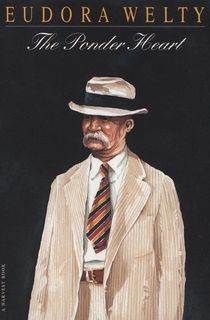
The Ponder Heart
Welty followed up Delta Wedding with this illustrated novella, which was originally published in The New Yorker and follows an heir to the wealthiest family in a Mississippi county as he gives his family fortune away, in spite of the attempted interventions of his relatives.
The novella was adapted to the stage several times, including as a Tony Award-winning Broadway play, as well as an opera, and has been called “the most positively received of Welty’s books” by Welty scholar Pearl Amelia McHaney.
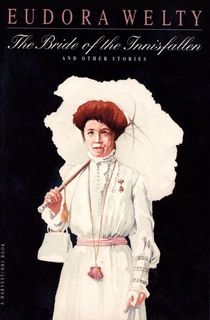
The Bride of the Innisfallen
In addition to her many novels, Eudora Welty also penned a wealth of short stories, and published numerous collections. Of those, The Bride of Innisfallen shows the breadth of Welty’s storytelling, even while, “The writing throughout is at Ms. Welty’s best level” (The Atlantic).
While some of the stories contained herein are still set in the American South, as so many of Welty’s tales were, there are also stories here which travel across the pond to European locales and showcase the dramatic variety to which the celebrated author was capable.

A Curtain of Green
“Miss Welty’s stories are deceptively simple,” The New Yorker wrote of this debut collection, which established Welty as a literary powerhouse right out of the gate. “They are concerned with ordinary people, but what happens to them and the manner of the telling are far from ordinary.”
Contained in A Curtain of Green are some of Welty’s most beloved short stories and yet, as Katherine Anne Porter writes in her introduction, “splendid beginning that it is, it is only a beginning.”
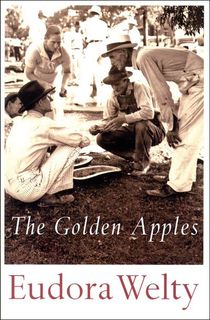
The Golden Apples
“Allusion and metaphor hang as thick as Spanish moss in Welty’s prose,” The Guardian observed of this 1949 collection of interconnected stories concerning the plight and legacy of a fictional Mississippi town.
Filled with “vivid evocations of nature that linger” (The Independent), this beloved book has been called one of the best depictions of “the particular texture of Southern life, and its special tone and pattern” ever written (The New Yorker).
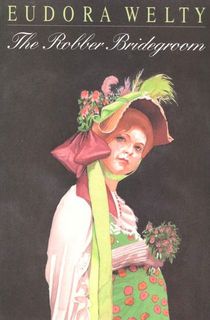
The Robber Bridegroom
Adapted into a musical in the ‘70s, Eudora Welty’s first novella is loosely inspired by the fairy tale of the same name, as well as sampling aspects of the myth of Cupid and Psyche.
The result is a uniquely Southern folk tale that helped to cement Welty’s reputation, combining real history with folklore and the author’s own irrepressible imagination. The result is “as sly and irresistible as anything in Candide. For all her wild, rich fancy, Welty writes prose that is as disciplined as it is beautiful” (The New Yorker).

The Wide Net
Welty’s immediate follow-up to The Robber Bridegroom was her second short story collection, which led Time magazine to proclaim that, “Miss Welty runs a photofinish with the finest prose artists of her time.”
Filled with eight of her best-loved stories, The Wide Net lives up to its title by casting a wide net to encompass many of the author’s interests and preoccupations, including Mississippi history, Southern life, folklore, and mythology, to name a few.
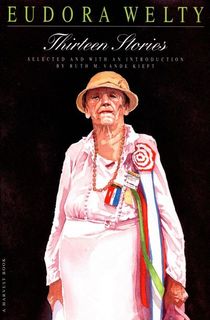
Thirteen Stories
A sort of early “best of,” Thirteen Stories was among the last short story collections Eudora Welty ever published. In it are a baker’s dozen of some of her best tales, including stories from A Curtain of Green, The Wide Net, and others.
Among these are her ode to improvisational jazz, inspired by a performance by Fats Waller, and her hilarious story, “Why I Live at the P.O.” “Miss Welty has written some of the finest short stories of modern times,” The New York Times proclaimed, and you’ll find some of the very best of them in this book.

